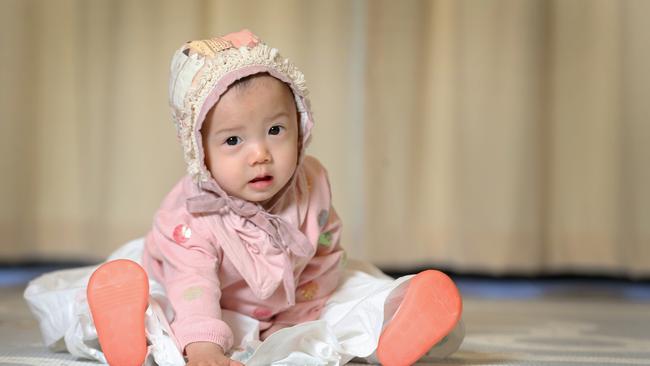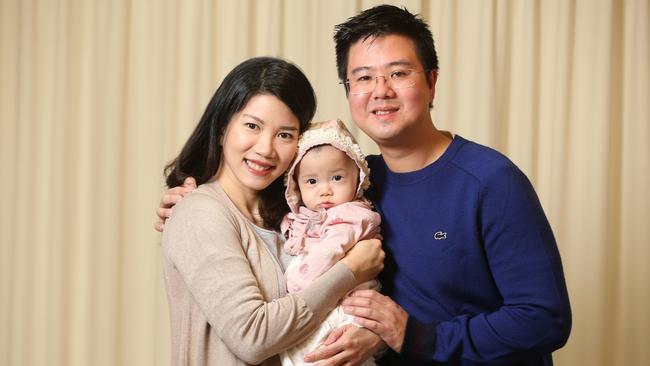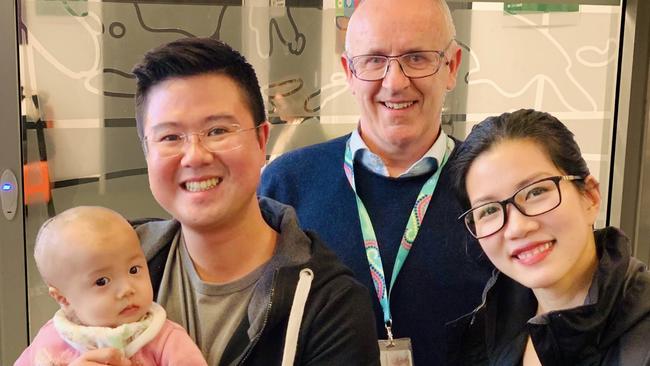Australian Craniofacial Unit doctors race to beat border restrictions for Brave Renee
For the family of a little girl desperate for life-changing help they could only find in South Australia, coronavirus and border closures could not have come at a worse time.

Coronavirus News
Don't miss out on the headlines from Coronavirus News. Followed categories will be added to My News.
- Accidental activists: How these mums saved their school
- Are you getting the most from your Advertiser subscription?
FOR little Perth girl Renee Hokandar and her family it has been a desperate race against time to be allowed into South Australia for life-changing treatment.
The 11-month-old was born with a rare condition, craniosynostosis, which means bones in her skull were prematurely joined together.
Her best chance for a normal life was cranial vault remodelling surgery, the catch being it needed to be done before she turned a year old – in just over a week’s time.
Renee was booked to have surgery at Adelaide’s Women’s and Children’s Hospital in March but it was cancelled when SA was put into lockdown due to the coronavirus pandemic.
As things settled it was rescheduled for June but cancelled as travel restrictions were again tightened after a UK woman allowed into SA on compassionate grounds tested positive to COVID.

“I was so devastated because if Renee didn’t have the surgery she would forever have the progressive facial twist,” mum Andriani said. “But I was accepting of the fact I would be able to mother her anyway and convince her she is beautiful.”
Still, not willing to give up, she set about lobbying for her daughter to be allowed to enter the state, taking her fight to the trio of deputy chief public health officers – doctors Evan Everest, Michael Cusack and Chris Lease.
“I sent each of them an email explaining my situation, I told them I was so desperate as we were running out of time – it was not a life-threatening situation but could impact on her future,” Mrs Hokandar, a trained nurse, said.
“They listened, were so kind and we were given the nod to come, on the proviso we did our 14 days of isolation prior to attending the hospital. I was just so happy.”
In June, Baby Renee was operated on by the Adelaide-based head of the Australian Craniofacial Unit, Dr Mark Moore, and his team.
“One of the plates on the back of Renee’s skull was prematurely fused,” Dr Moore said.

“We needed to surgically remove that fused piece of bone and then reshape the skull on the back of her head and basically take one side and turn it to the other.
“In an ideal world this will be a one-off and she will be able to get on and lead a normal life.
“She was a model patient.”
Dr Moore said it was important to do the surgery in the first 12 months of a child’s life to achieve the best results and avoid developmental issues.
Renee and her family are now back home in Western Australia, where they were required to isolate for 14 days on their return.
“She is adorable and just so happy – she doesn’t look like she has just had major surgery at all, the only sign of it is the big scar on her head,” Mrs Hokandar said.
